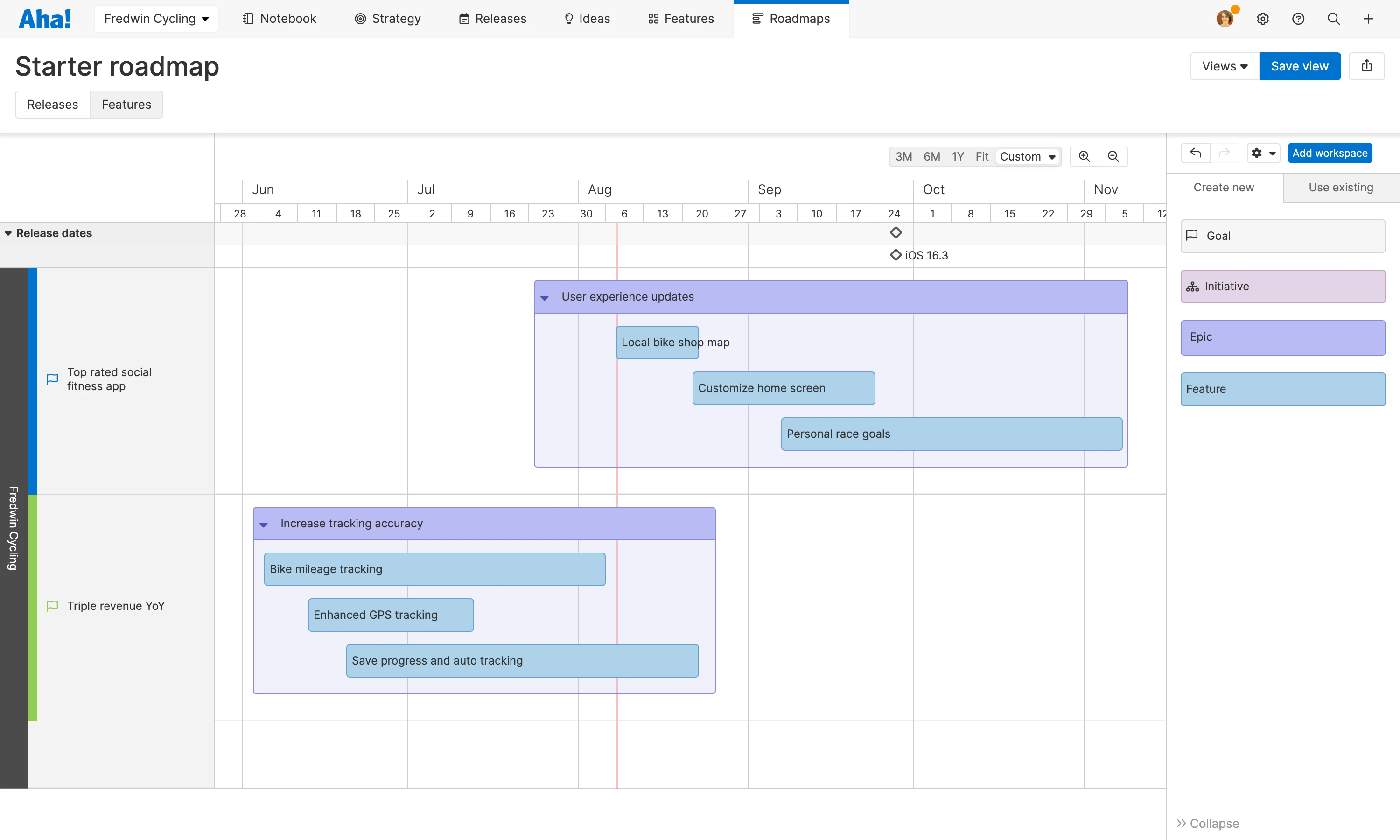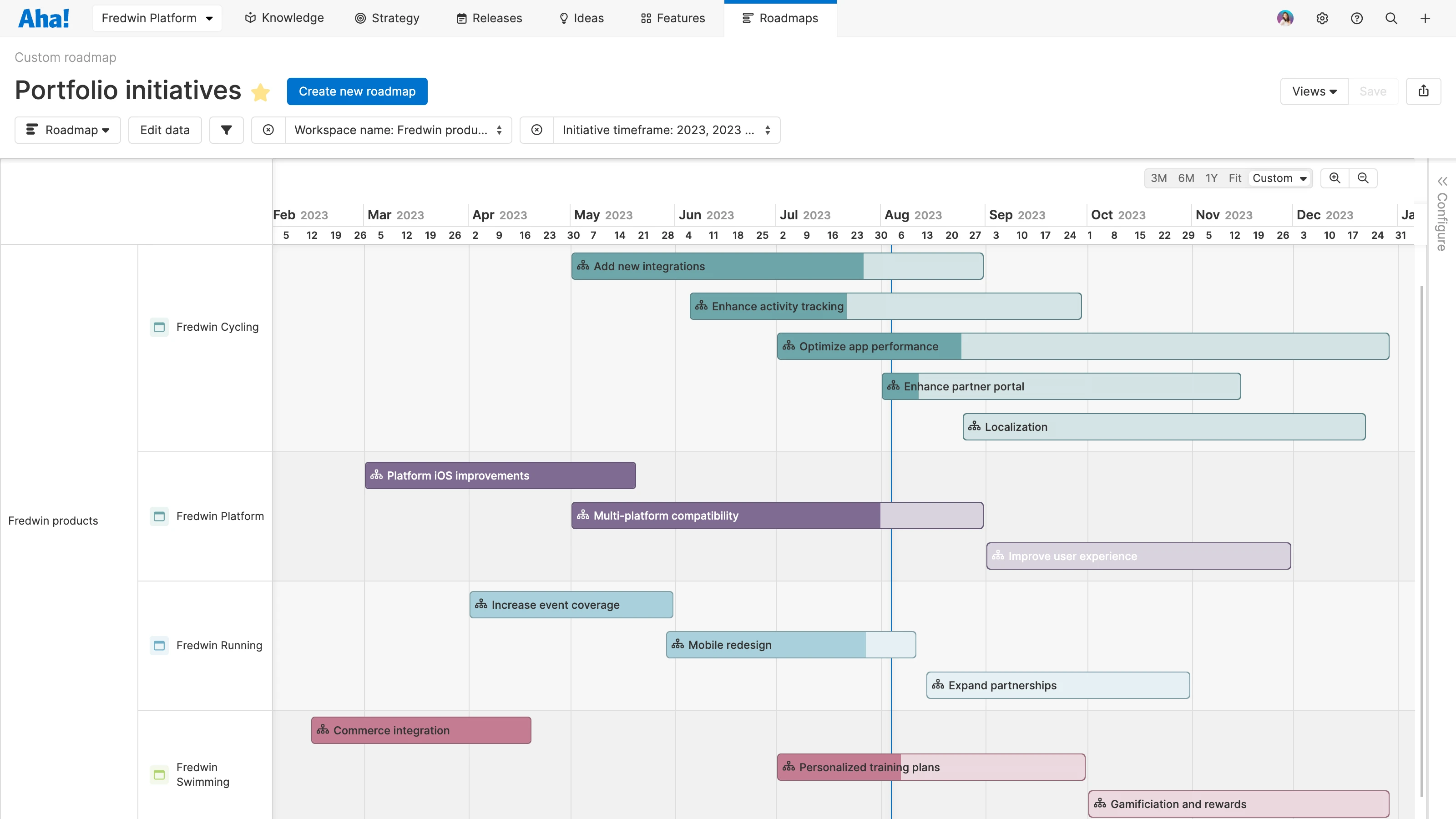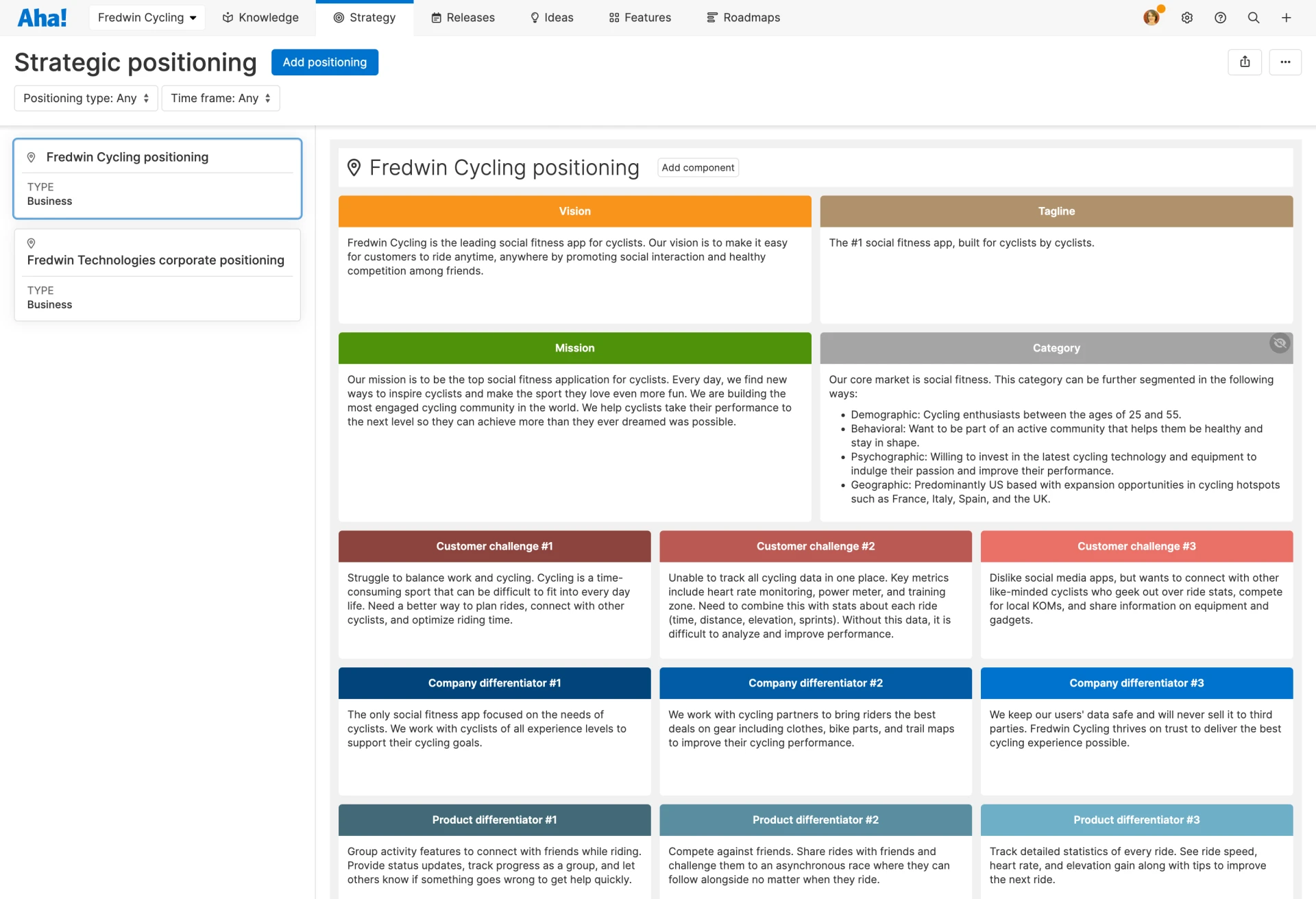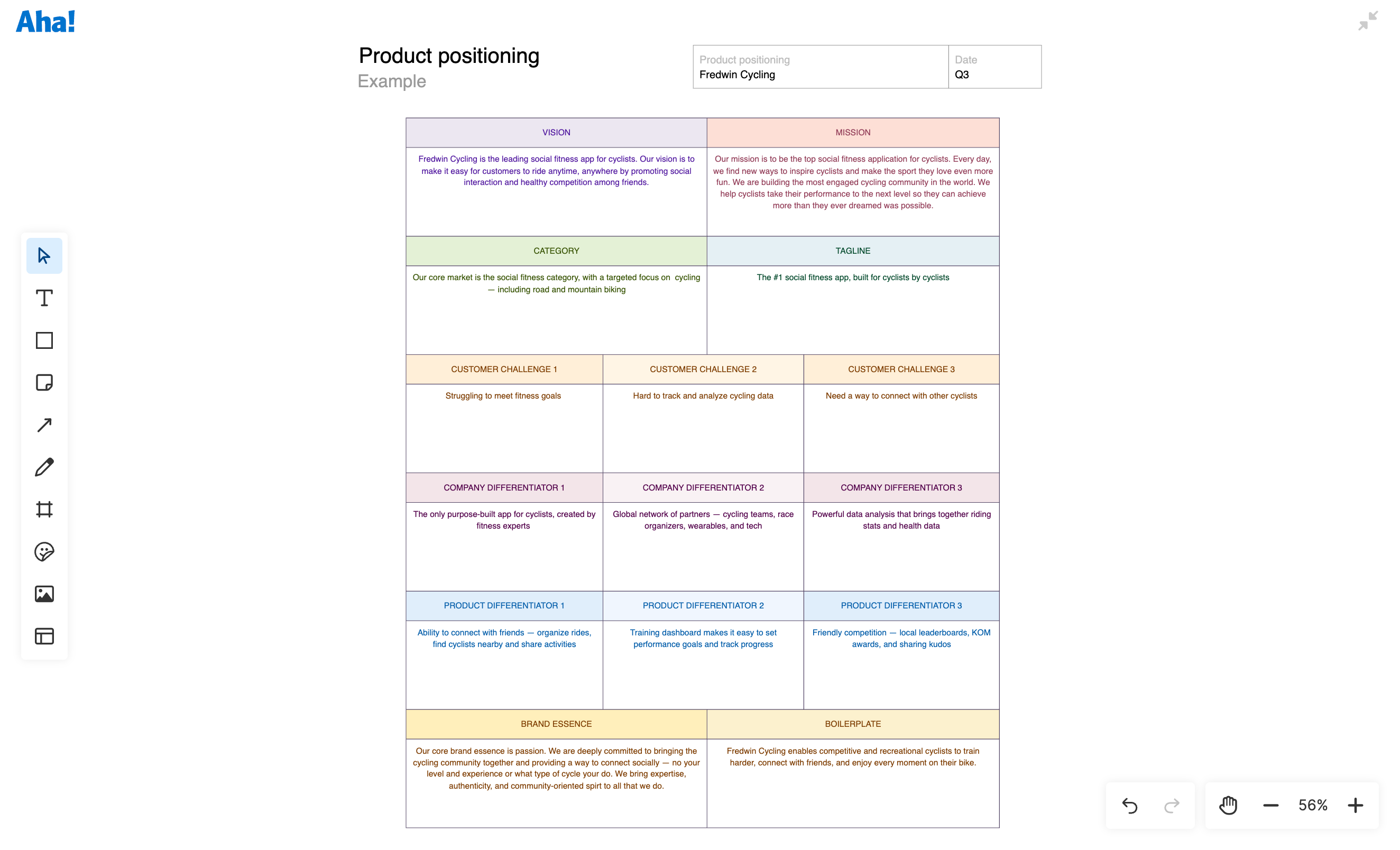Top
What is a product positioning statement?
Once your positioning is defined, create a brief product positioning statement that describes your target audience, what sets your product apart, and why customers should care about it. Here is an example of a positioning statement template:
For [group of users] that [need/want], [company/product] is a [category/solution] that uniquely solves this by [benefit].
It would be helpful to use an example company to talk through this. Let’s use Fredwin Cycling, a fictitious company that builds a cycling app. The target market is predominantly cycling enthusiasts who are interested in improving their fitness. Your customer and market research reveals that users are concerned about their health but are struggling to stick with an exercise program. Users want to stay motivated by connecting with like-minded friends. The product addresses this need by providing a social cycling community that promotes friendly competition and tracks workout performance.
Here is an example of a product positioning statement for Fredwin Cycling:
For cyclists who want to connect with other athletes, Fredwin Cycling is the leading social fitness application that uniquely brings the cycling community together by promoting healthy competition.
Top
How do people perceive your product?
Your product positioning shapes how you want your product to be known in the market. But there are many different factors that can affect how your product is perceived. The major influence is what customers experience when they actually use your product and interact with your company. It is the summation of the Complete Product Experience (CPE) that determines what customers think and feel about your product.
There are seven core areas that contribute to the CPE:
Marketing | How potential customers learn about your product and decide if it might be a fit |
Sales | How prospects get the information they need to make a purchasing decision |
Technology | The core set of features that customers pay for |
Supporting systems | The internal systems that make it possible to deliver the product |
Third-party integrations | The ecosystem of products the customer uses |
Support | How customers receive product training and assistance |
Policies | The rules that govern how your company does business |
Remember, every touchpoint with your company either reinforces or undermines your positioning. So while you should consciously plan how to position your product, you should think broadly about every aspect of the adoption process. Because your customers will decide what they really think about your product.
Top
Product positioning strategies
Customer perceptions of your product can be altered — positively or negatively — by any aspect of your CPE. Clearly defined product positioning will help you maintain a cohesive message about your product's unique value at each touchpoint. But while your product's value should be unique, your positioning strategy does not have to be completely original.
There are several standard types of product positioning strategies that companies use to differentiate their products. Here are some common types of product positioning:
Price | Position your product as the more affordable option on the market |
Quality | Convey that your product is high quality or luxury. This can be an effective positioning strategy against product rivals that are competing on price. |
User | Target a specific user group, demographic, or application that is relevant to your product. |
Product type | Shift customer perceptions and reach new market segmentations by selecting an alternate category for your product. |
Competitor | Demonstrate directly or indirectly that your product is better than a competitor's product. |
Differentiation | Show that your product is a completely unique offering in the market that can not be easily duplicated. |
The positioning strategy that is best suited for your product depends on your customers' needs, the results of your market research, and the goals you have as a business or product leader. But regardless of the strategy you choose, well-defined product positioning will show that you have honed in on what makes your product uniquely valuable — and that you know how to communicate this value to your customers.




